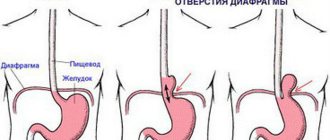The human ear is a self-cleaning organ of hearing. ENT doctors do not recommend deep cleaning. Wax in the ear canal provides protection against infection. The sulfur plugs are washed out by a specialist doctor at the appointment. If you try to remove excess wax on your own, you may find blood from the ear on a cotton swab.
This phenomenon is caused by various reasons and is accompanied by additional symptoms. Bleeding from the auricle looks like a spotting discharge with inflamed mucus, or blood literally flows onto the neck and shoulder.
1.General information
The appearance of blood where it is not intended by nature is in all cases a serious symptom and requires medical intervention. We are, of course, not talking about scratches, donation, regular menstruation in women and other obvious situations; An alarming sign is internal or external hemorrhages (bleeding, hemorrhages), or the admixture of blood in biological substances.
Blood should not flow from the external auditory canal under any circumstances.
Therefore, regardless of how the patient himself feels about this phenomenon (and the reaction in some cases can be completely inadequate, up to anosognosia, i.e. denial of the very fact of the presence of a disease or symptom), contact a doctor, at a minimum, for advice is strictly required.
A must read! Help with treatment and hospitalization!
What if it's barotrauma?
The condition when bleeding comes from a child’s ear causes panic in any parent. Such a symptom is a clear reason to go to an ENT specialist, because there is a high probability of a ruptured or torn eardrum.
Barotrauma occurs due to a strong blow to the ear, for example from water, or after a fall. It can also be triggered by a sharp foreign object in the ear. Internal pressure changes rapidly. The eardrum vibrates violently and becomes damaged. The child experiences noise or crackling in the ears and complains of a deterioration in his general condition.
If a complete rupture of the eardrum occurs, sudden hearing loss, severe bleeding and other symptoms are possible, including loss of consciousness. Minor tears can be asymptomatic for a long time, but the damaged area becomes an open gate for infections and otitis media. Therefore, it is dangerous to ignore mechanical ear injuries even with minor bleeding.
Bleeding from the auricle is the first sign of barotrauma
2. Reasons
Bleeding from the ear is considered a relatively rare occurrence, although the possible causes are quite numerous and varied:
- traumatic brain and otoinjuries;
- acute purulent otitis media;
- perforation of the eardrum when cleaning the ears with an object not intended for this purpose;
- barotrauma (during scuba diving, a nearby explosion, a sharp rise in the plane to altitude, etc.);
- spontaneous opening of a purulent abscess in the ear canal;
- tumor processes, benign or malignant;
- polypous hyperplasia;
- foreign body with sharp edges;
- active fungal (most often candida) infections of the ear canal.
Visit our Otolaryngology (ENT) page
Bleeding from the ear
Bleeding from the ear is a dangerous symptom that occurs as a result of injury or a number of diseases. Bleeding from the ear - the most serious bleeding from the ear occurs when the bony part of the ear canal is fractured and the eardrum is ruptured at the same time. Other causes include acute and chronic suppurative otitis media, trauma and tumors of the middle ear and external auditory canal. Causes
- Acute otitis media. Infectious pathologies of the middle ear and dirty water most often cause the appearance of otitis media and blood from the ear. But blood in otitis must necessarily be mixed with pus, and even, what is even more likely, pus with streaks of blood flows out. Heavy bleeding is unlikely to indicate otitis media, which, among other things, is characterized by acute, throbbing, shooting pain, ear congestion, and temperature. Also, blood with pus can mean perforation of the eardrum due to otitis media, and during this condition the pain becomes acute and sharp.
- Myringitis, or inflammation of the eardrum. This pathology causes the appearance of inflammatory vesicles on the membrane, which, after opening, cause blood from the ear in small quantities, mixed with serous exudate. With myringitis, all the symptoms resemble those of otitis externa (pain, itching, burning), and it is impossible to independently differentiate these diseases.
- A scratch or other injury to the ear canal. It is very easy to get a wound or scratch on the delicate skin of the ear canal, especially in children, when cleaning the ear or introducing a foreign body. When examining the initial parts of the outer ear, you can detect such a scratch, but in case of a more serious injury, you should urgently consult a doctor. If the cause of the bleeding lies in a simple scratch, then after a few drops of blood are released, it stops.
- Trauma (rupture) of the eardrum. In fact, it is impossible to damage the membrane unnoticed, since it is quite strong. This usually occurs when a foreign body enters the ear and is accompanied by severe pain, noise in the ear, the appearance of blood and hearing loss.
- Hyperplastic processes in the ear. Various benign tumors can become injured, fester, their membrane bursts, resulting in bleeding from the ear. Usually, in the presence of such problems, an unpleasant odor from the ear, congestion, gradual deterioration of hearing, and sometimes headache, dizziness, and visual disturbances appear.
- Furuncle of the auditory canal, or limited external otitis. The inflammatory process in the hair follicle leads to suppuration of the latter due to infection with Staphylococcus aureus. Associated symptoms with a boil are sharp pain in the ear, swelling of the ear canal, its hyperemia, increased pain when pressing on the ear nodule. After opening the boil, pus flows out of it along with blood.
- Candidiasis of the ear cavity. This pathology is caused by candida - yeast-like fungi. Typically, the disease occurs after the abuse of ear antibiotics, when active proliferation of fungi begins in the ear canal or middle ear. Bleeding with ear candidiasis is not profuse, accompanied by itching, discomfort, and a white, curd-like coating is noticeable on the ear canal.
- Less often, but still a malignant process in the ear - carcinoma - can occur. This disease is characterized by frequent bleeding, but no pain. In advanced stages, the patient's hearing is severely impaired and an unpleasant odor appears from the ear. There is another disease accompanied by bleeding - malignant otitis externa, which causes deep damage to the tissues of the ear and bones. This disease causes severe pain, high body temperature, and hearing loss.
- After a head injury, if bleeding from the ear is detected, a fracture of the base of the skull can be suspected. In this case, there may be copious leakage of blood, bruising is visible around the temporalis muscle, as well as in the area of the mastoid process of the temporal bone. Other injuries in which blood from the ear can be recorded are head injury, contusion of the labyrinth.
Treatment:
Depending on the disease. If bleeding occurs, you should immediately consult a doctor.
Blood from the ear, whether it is a slight discharge or a profuse leakage, requires mandatory and urgent consultation with a doctor. The fact is that there can be many reasons for bleeding from the organ of hearing, and some of them are very dangerous. Only a specialist will be able to find out the causes of pathology affecting the ears and prescribe adequate treatment.
In many situations, after examining the patient, the otolaryngologist directs him to undergo a course of therapy at home, but sometimes the patient requires urgent hospitalization.
If blood appears due to a foreign body entering the ear, after a head or eardrum injury, the person should be immediately taken to the emergency room to see a traumatologist, who will decide on further treatment tactics.
In addition, you should urgently consult a doctor if you have severe ringing in your ears, sudden loss of hearing, sudden vomiting, nausea, dizziness, and all these symptoms are combined with bleeding from the ear canal.
Emergency care at home before the ambulance arrives may include the following measures:
- fold the sterile bandage 5-6 times and apply to the ear;
- if there is a clearly noticeable injury to the ear canal, carefully treat the wound with hydrogen peroxide or place a tampon with peroxide in the ear;
- If a small burst boil is detected near the external opening of the ear canal, it should be treated with boric alcohol, removing the remaining pus with a gauze swab.
After first aid, consult a doctor immediately to rule out severe pathologies and serious causes of bleeding from the ear.
Injuries require treatment in a specialized department of the hospital, depending on which organ was damaged (skull, spine, labyrinth, brain, etc.). If the eardrum is severely ruptured, a person may require tympanoplasty surgery.
Small perforations heal on their own in 2-4 weeks.
3. Symptoms and diagnosis
The main symptom, in fact, is reflected in the title. The amount of blood, depending on the reasons, can vary - from one drop to a noticeable trickle.
Likewise, the color and composition of the discharge may vary - pure scarlet blood, bloody cloudy mucous fluid, pus streaked with blood, etc.
Only an otolaryngologist can establish the causes, assess the degree of danger and prescribe additional diagnostic procedures. In addition to standard otoscopy, radiography, CT or MRI, laboratory smear analysis, and consultations with specialized specialists may be required.
About our clinic Chistye Prudy metro station Medintercom page!
Diagnosis of the problem
The doctor conducts a tactile and visual examination and, if necessary, performs an otoscopy , which will identify any damage in the ear.
If chronic purulent otitis is suspected, differential diagnosis of epitympanitis from mesotympanitis using X-rays and computed tomography . fluid samples will be taken for analysis. Thanks to research, the doctor can:
- determine the presence of inflammation in the hearing organ;
- identify the exact causative agent of the infection;
- determine the stage of the process;
- find out if there are any complications.
After making a diagnosis, the doctor will prescribe effective medications.
4.Treatment
In any case, first aid consists of ensuring the free evacuation of blood and other discharge from the ear canal.
In other words, you cannot pack the ear with cotton, place the patient on his side with the bleeding ear facing up, etc. If there is a risk of infection, use gauze or a bandage, which is applied in several layers to the auricle and bandaged loosely. As a last resort (if medical assistance is obviously not provided soon), instillation of a 0.3% hydrogen peroxide solution into the ear canal is allowed.
It is strictly contraindicated to heat the ear or try to independently remove a foreign body, even if it is clearly visible. Both contraindications apply especially to parents and grandmothers of small children.
In any situation, the first priority is to transport the patient to a doctor as quickly as possible or (depending on the circumstances and general condition) to call an ambulance.
Further therapeutic or surgical strategy is determined by the identified cause of bleeding.
Forecast
The prognosis for bleeding from the ear is generally favorable. Blood loss is not critical; bleeding can be stopped fairly quickly using modern methods.
Kovtonyuk Oksana Vladimirovna, medical observer, surgeon, consultant doctor
11,768 total views, 1 views today
( 68 votes, average: 4.53 out of 5)
Otitis in children: classification, symptoms and treatment
Laryngeal cyst: causes, symptoms and treatment
Related Posts
Inflammation of the inner ear (labyrinthitis)
The labyrinth is an organ of hearing and balance, is richly innervated and includes auditory and kinetic receptors, so its inflammation causes:
- severe ear pain and headaches;
- a sharp decrease in hearing, the appearance of noise, crackling, squeaking in the ear;
- dizziness, nausea, loss of orientation in space, horizontal nystagmus.
Labyrinthitis occurs as a result of the penetration of infection in various ways from different parts and cavities of the body:
- from the middle ear with untreated or advanced otitis media;
- with infected meninges during meningitis;
- with blood for diseases such as syphilis, tuberculosis, herpes;
- damage to the temporal region, the organ of hearing with disruption of the integrity of cells and blood vessels.
The disease requires immediate medical attention.
Ear pain due to diseases of other organs
- Mastoiditis - inflammation of the mastoid process - causes intense throbbing pain in the ear, swelling of the tissue behind the auricle, hearing loss, and hyperthermia.
- With arthrosis and arthritis of the temporomandibular joint, the patient is bothered by shooting pains in the ear, which intensify when chewing, a crunching sound in the temple area, and over time, hearing impairment and malocclusion are possible.
- Mumps is an inflammation of the salivary gland located in front of the auricle, accompanied by acute pain in the ear, aggravated by swallowing and chewing, and swelling of the tissues.
- Inflammation of the parotid lymph nodes (lymphadenitis) develops when infection penetrates into them from diseased teeth or from other foci of inflammation.
- Inflammatory diseases of the nasopharynx and sinuses, malignant processes in the larynx and oral cavity are often accompanied by pain in the ear when swallowing.
- Caries, pulpitis. Since the organ of hearing, like the teeth, is innervated by the branches of the trigeminal nerve, damage to the teeth and jaw may be accompanied by pain in the ear area.
- An atypical form of heart attack, when the patient’s only subjective complaint is pain in the ear.









